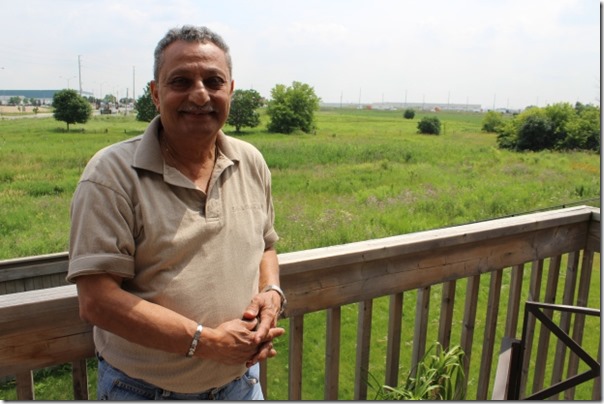Jal Panthaky is a Zoroastrian priest, with a love of life and a staunch dedication to his faith. He is both a proud father and a deeply spiritual man. But neither of these are static roles. Recently, his devotion to his religion and to his children collided; he felt moved to examine the tenets of his faith, and that has led him to be open to new relationships and embrace new horizons.
The collision occurred when his eldest daughter, Rahnuma, brought home a man she was dating who was not Zoroastrian. In Zoroastrianism, mixed marriages are frowned upon. Not only that, but the rules are different for men and women.
A Zoroastrian man who marries a non-Zoroastrian woman can at least ensure that his children are raised in the faith. But the same is not the case for a Zoroastrian woman who marries a non-Zoroastrian man. She is unable to practice, to enter the temple, or even to attend a family funeral.
Orthodox roots run deep
“I was born in a priestly family [of] many generations,” Jal says. “My father was a high priest in a place of worship, and my brother was a principal in a monastery where they taught new Zoroastrian priests … the belief was that you don’t allow any non-Zoroastrians into any of our religious ceremonies, and you don’t allow our children to marry outside the Zoroastrian faith.”
So when Rahnuma introduced Michael to her family, Jal was at a loss. Outwardly, he initially didn’t extend much of a welcome to Michael.
Rahnuma recalls, “When he got an inkling that I was dating Michael at the very beginning, he basically said, ‘You are not going to date him, and if you do I will make it very difficult for you.'”
But inwardly, Jal searched his faith for answers to his dilemma: What was behind the rules against interreligious marriage in Zoroastrianism? And how would they affect his daughter’s wish to marry outside the faith?
A faith examined
Jal’s quest for understanding has led him to embrace his son-in-law and has changed his practice as a priest; he now performs mixed marriage ceremonies.
“We proudly say that Zoroastrianism is the first monotheistic religion. If we believe in one God, then all these people are his children. So why should we discriminate [against] them? And I started to open my mind to observe the people; and especially in my own family, my own daughter.”
– Jal Panthaky
His journey has not only enriched his family life, but it also represents an important step for Zoroastrians. A broader outlook on marriage may be a boon to this ancient religion; by some estimates there are fewer than 200,000 Zoroastrians in the world.



